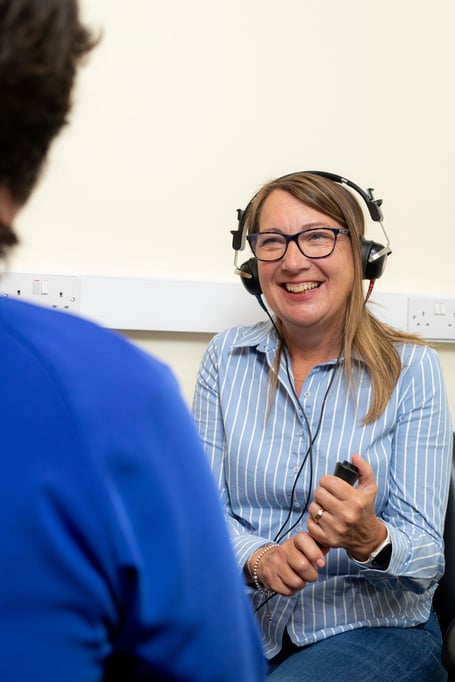A NEWQUAY optician is campaigning to safeguard the art of listening.
Scrivens in East Street is urging families to reclaim the dinner table during Hearing Awareness Month by removing digital distractions to make space for meaningful conversations and listening.
The optician has launched the initiative after a survey revealed nearly half of parents and grandparents believe younger generations have become significantly worse listeners, with devices and digital distractions blamed for the decline.
The research, commissioned by Scrivens Opticians & Hearing Care for Hearing Awareness Month, found that in a world dominated by digital 'chatter', meaningful family conversations are being drowned out by notifications, scrolling and screen time – a trend that poses particular challenges for many older people whose hearing naturally deteriorates with age.
A spokesperson for Scrivens said: “Good hearing is fundamental to staying connected with loved ones. However, when conversations are peppered with distractions and family members aren't fully engaged, it becomes even more difficult for those experiencing hearing loss to follow along, which can lead to feeling disconnected from their family and friends.”
The survey findings support the concern. Nearly one in two, 48 per cent, respondents with children or grandchildren under 25 believe young people today are worse listeners than their generation, with almost half, 47 per cent, reporting that younger family members regularly use devices during conversations.
The study reveals a stark disconnect between what families know they should do and what they actually practice. While nine in 10, 89 per cent, of respondents believe that tech-free meals improve family communication, fewer than half, 48 per cent, have a 'no technology' policy during dinner, and nearly one in three, 32 per cent, report that phones and devices regularly interrupt their family dining experiences.
The generational communication gap extends beyond the dinner table. More than half, 51 per cent, of conversations between older respondents and their younger family members now happen through texts and messaging apps rather than voice-to-voice communication, despite only 38 per cent of older respondents preferring this digital-first approach.
The survey also highlights growing concerns about hearing health in younger generations, with nearly one in five, 18 per cent, respondents expressing worry about younger family members' hearing due to loud music and prolonged headphone use.
Scrivens branch manager, Dorota Howe, said: "Our survey reveals a truth many families recognise but struggle to address; we're physically present but mentally absent, spending less time truly listening and more time scrolling. For older family members dealing with natural hearing decline, this divided attention makes communication even harder. When you're straining to hear and the people around you are distracted by their devices, you can feel invisible in your own family.
"While we can't turn back time on technology, we can take proactive steps to protect our hearing for decades to come by following the 60-60 rule: listen to music at no more than 60% volume for no more than 60 minutes at a time, then give your ears a break.
"It’s a fact that our hearing naturally deteriorates with age, so for those over 45, we strongly encourage annual hearing assessments. Early detection allows us to intervene sooner and maintain better communication with loved ones. It's never too late to prioritise your hearing health and regular check-ups ensure you won't miss out on those precious family conversations that matter most."
Scrivens is challenging families to take the Hearing Check Challenge, with its quick and easy online hearing test





Comments
This article has no comments yet. Be the first to leave a comment.